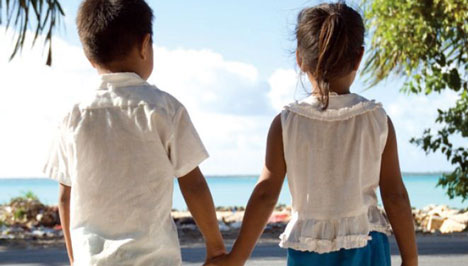The Department of Foreign Affairs and Trade (DFAT) has a zero-tolerance approach to child exploitation, abuse and harm. As a signatory to the Convention on the Rights of the Child (UNCRC), Australia is committed to upholding children's rights and takes proactive measures to prevent, identify and respond to safeguarding risks. DFAT implemented its first child protection policy in 2008 and continues to strengthen its commitment to child safety. This updated Policy aligns with the Commonwealth Child Safe Framework [PDF] and the National Principles for Child Safe Organisations [PDF].
The Child Protection Policy (the Policy) applies to all DFAT business in Australia and overseas, including to all DFAT staff, DFAT partners and downstream partners.
Scope of this policy
The Policy applies to all DFAT business. This includes, but is not limited to, the business carried out by partners and contractors working across Development and Humanitarian programs, Foreign Policy and Diplomacy, Corporate, Trade, Passports, Consular Services, Scholarships and Fellowships, Volunteers, Labour Mobility and Public Diplomacy activities.
Child Protection Policy Principles
The Policy is underpinned by the following principles. The principles reflect DFAT's commitment to the Commonwealth Child Safe Framework and the National Principles for Child Safe Organisations.
- Principle 1: Zero tolerance for child exploitation, abuse and harm
- Principle 2: Prioritise the best interests of the child
- Principle 3: Promote inclusion and equity and recognise diversity
- Principle 4: Prioritise prevention
- Principle 5: Adopt an empowering and participatory approach
- Principle 6: Reporting incidents is mandatory
- Principle 7: Embed safeguarding into organisational culture and leadership
Risk-Based Approach
The Policy employs a risk-based approach, ensuring that Child Protection Standards are proportionate to risk and expected level of contact with children. Further guidance and details on the Standards and the risk-based approach are provided in the Policy and in the Interim Guidance on the updated approach to risk assessments and relevant standards (August 2025).
DFAT Child Protection Policy and Interim Guidance
DFAT Child Protection Policy (2025)
- Interim guidance on the updated approach to risk assessments and relevant standards (August 2025) [DOCX 410 KB]
- Interim guidance on the updated approach to risk assessments and relevant standards (August 2025) [PDF 4.5 MB]
Multilateral organisations and bilateral donor partners funded by DFAT are expected to act in accordance with the policy principles outlined in this document, and abide by their own relevant policies, international declarations, conventions, agreements and domestic legal frameworks, which seek to protect children.
General enquiries about the policy can be made at:
Human and Environmental Safeguards Section
Development Effectiveness and Enabling Division
Department of Foreign Affairs and Trade
Email: childprotection@dfat.gov.au
Telephone: +61 2 6178 5100
Reports and notifications
If you wish to report an instance, suspicion or allegation of child exploitation and/or abuse you may do so by using the following form.
Please email the form to:
Email: childprotection@dfat.gov.au
Telephone: +61 2 6178 5100
Child exploitation and abuse is not tolerated by DFAT and attracts criminal penalties under Australian legislation.
Child Protection Policy and Guidance Materials
Several guidance notes are also available to assist in meeting DFAT's child protection requirements.
If you have been abused or have any concerns relating to the abuse or exploitation of children within your community or if you or a child is in immediate danger, contact your local police.

